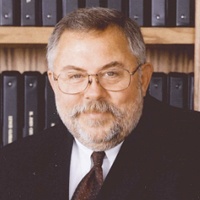Garwood Estate Lawyer, Texas
Sponsored Law Firm
-
 x
x

Click For More Info:
-
Levin & Atwood, LLP
20501 Katy Fwy Ste 217 Katy, TX 77450» view mapEstate Law Knowledge And Experience You Can Trust
Levin & Atwood provides the full spectrum of legal counsel to family owned and other private companies.
281-579-6044
Donald N. Bendy
Commercial Real Estate, Real Estate, Wills, Estate
Status: In Good Standing Licensed: 56 Years
Marcus F. Schwartz
Estate Planning, Natural Resources, Personal Injury, Insurance, Government
Status: In Good Standing
 https://www.lawyer.com/imgup/m/42b10d2e0736048a6dc376884ea4bbc3.jpg Katy, TX
https://www.lawyer.com/imgup/m/42b10d2e0736048a6dc376884ea4bbc3.jpg Katy, TX AboutLevin & Atwood, LLP
AboutLevin & Atwood, LLP Practice AreasExpertise
Practice AreasExpertise
